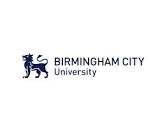Do you aspire to be a master game programmer? Our bsc (hons) game programming course is designed to propel you into the dynamic world of game development. Immerse yourself in our advanced game programming labs, equipped with the latest software and hardware, including high-performance pcs and vr dev

Do you aspire to be a master game programmer? Our bsc (hons) game programming course is designed to propel you into the dynamic world of game development. Immerse yourself in our advanced game programming labs, equipped with the latest software and hardware, including high-performance pcs and vr development kits.
This course offers a blend of theoretical knowledge and practical skills in areas like AI, mobile and console game development, and graphics programming. Collaborations with industry giants and proximity to game studios provide unparalleled networking opportunities and insights into real-world applications. Get ready to make your mark in the gaming industry, showcasing your skills in prestigious competitions like the Global Game Jam.
Our facilities are specifically designed to provide a real-world gaming development environment. You will have access to cutting-edge game development PCs and console development platforms. We emphasise hands-on learning with tools like Unity, Unreal Engine, and custom game engines developed in-house. The course also fosters a practical understanding of hardware used in game development, from mobile devices to high-end gaming consoles.
Through our partnerships with leading technology companies and game development studios, you will have the unique opportunity to work on collaborative projects, gaining invaluable industry experience. These collaborations enable you to stay ahead of technological trends and learn directly from experts in the field.
Introducing steamhouse
What's covered in this course?
Professional Placement Year
Why Choose Us?
Year 1
In order to complete this course a student must successfully complete all the following CORE modules (totalling 120 credits):
Game Programming
Modelling
Game Asset Pipeline
Game Mechanics
Animation
Game Design
Year 2
In order to complete this course a student must successfully complete all the following CORE modules (totalling 120 credits):
High Performance Libraries
20 credits
Web and Mobile Development
20 credits
Game Studio Production
20 credits
Game Engine Architecture
20 credits
Computer Graphics
20 credits
Collaborative Practice
20 credits
Year 3
In order to complete this course a student must successfully complete all the following CORE modules (totalling 120 credits):
Game Artificial Intelligence
20 credits
Network Programming
20 credits
Game Physics
20 credits
Console Game Development
20 credits
Individual Honours Project
40 credits
Our earlyhistory can be traced back to the five individual colleges which would be brought together as The City of Birmingham Polytechnic in 1971.
Birmingham College of Art has its roots back in October 1843, when the Birmingham Society of Artists opened the Birmingham Government School of Design. I
n 1884 the School evolved into Birmingham College of Art, moving to a beautiful purpose-built Venetian Gothic building on Margaret Street designed by John Chamberlain. Today Margaret Street, which still houses our Department of Art, is a Grade I Listed Building.
In 1888 Birmingham School of Jewellery, which was based in Ellen Street, became a branch of the College of Art. Two years later a new building was opened in Vittoria Street which has been the School's home ever since.
The School of Architecture was established within the College of Art in 1909 and won Royal Institute of British Architects (RIBA) recognition in 1923 and 1930 to become one of the UK’s major schools of architecture. On entry into the Polytechnic, the School became a leading department of the Faculty of the Built Environment.
Birmingham School of Music developed as a department of the Birmingham and Midland Institute around 1859. The first phase of the present building in Paradise Circus was opened in 1973 by HM The Queen Mother.
Birmingham College of Commerce was established in the early 20th century and became a branch of Birmingham Central Technical College (CTC) with its main teaching centre in Edmund Street.
South Birmingham Technical College opened in 1961 on Bristol Road. In the early 1970s, the College's departments moved to new buildings in Perry Barr and the South Birmingham site was later occupied by Bournville College of Further Education until 2011.
North Birmingham Technical College was created in 1966 when Aston Technical College moved to new premises at Perry Barr. New buildings for the college formed part of the University's City North Campus until 2018.
Becoming Birmingham City University
In 2007, the University changed its name to Birmingham City University and received a new logo, a reworking of the tiger crest used by the University of Central England in Birmingham, which itself originally came from the Birmingham College of Commerce, one of the Polytechnic's founder institutions.
From 2011, the University has undertaken a major investment in its estates and facilities to create a campus fit for the future. The City Centre Campus has seen three major new developments – the Parkside Building for Design and Media students opened in 2013.
The Curzon Building, which houses Business, Law and Social Science courses as well as new library, IT and student support facilities opened in 2015.
And our new music building for the Royal Birmingham Conservatoire opened in 2017. A new extension to our City South Campus to house Education, Sport and Life Science courses opened in 2018.
Our Values
BCU’s Values underpin how we work in achieving the ambitions set out in our Strategy and Priorities, and are the principles that unite the way we work together and for our students.
As the University for Birmingham, our values also reflect our relationship with the city, how we care about our community and the collaboration we use to get the best results.
Our Values are not just words on a page but actions and behaviours that can be seen, heard and felt in what we do every day
© 2025 coursetakers.com All Rights Reserved. Terms and Conditions of use | Privacy Policy